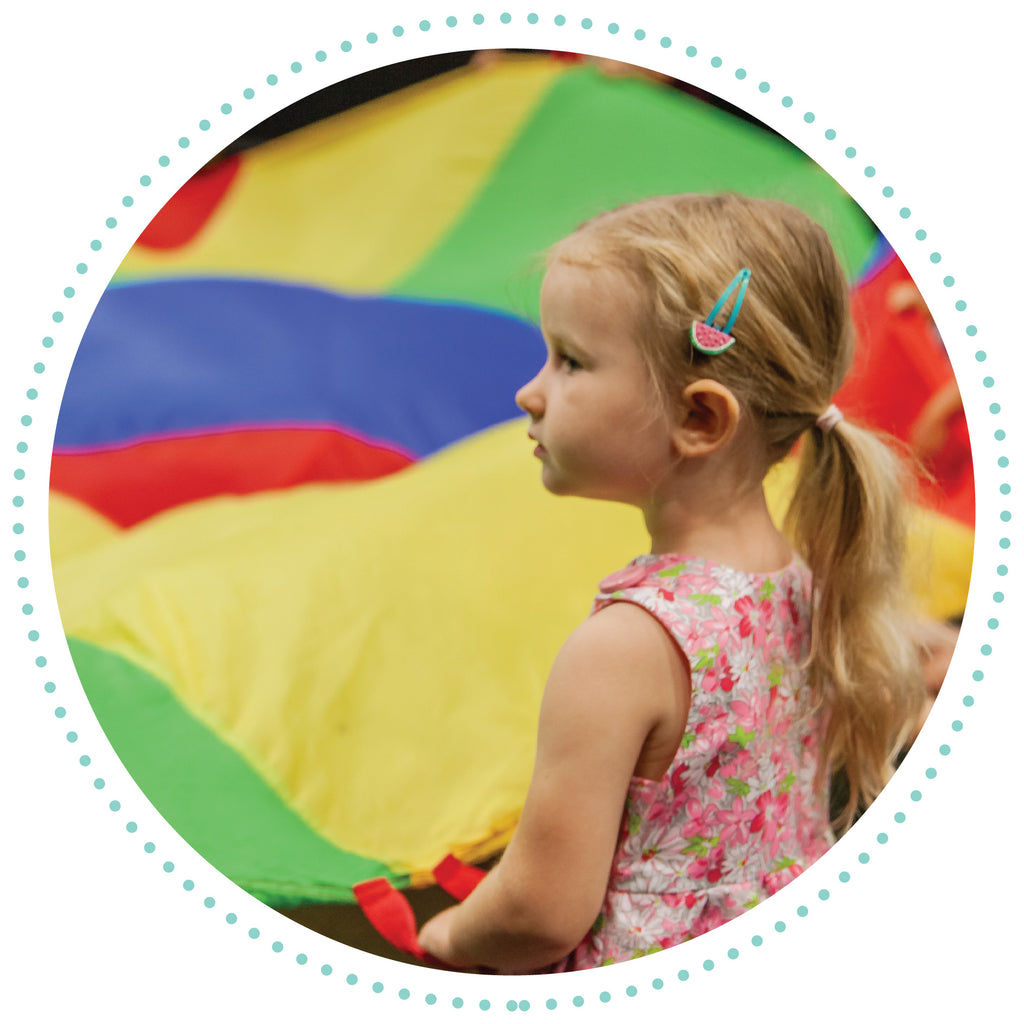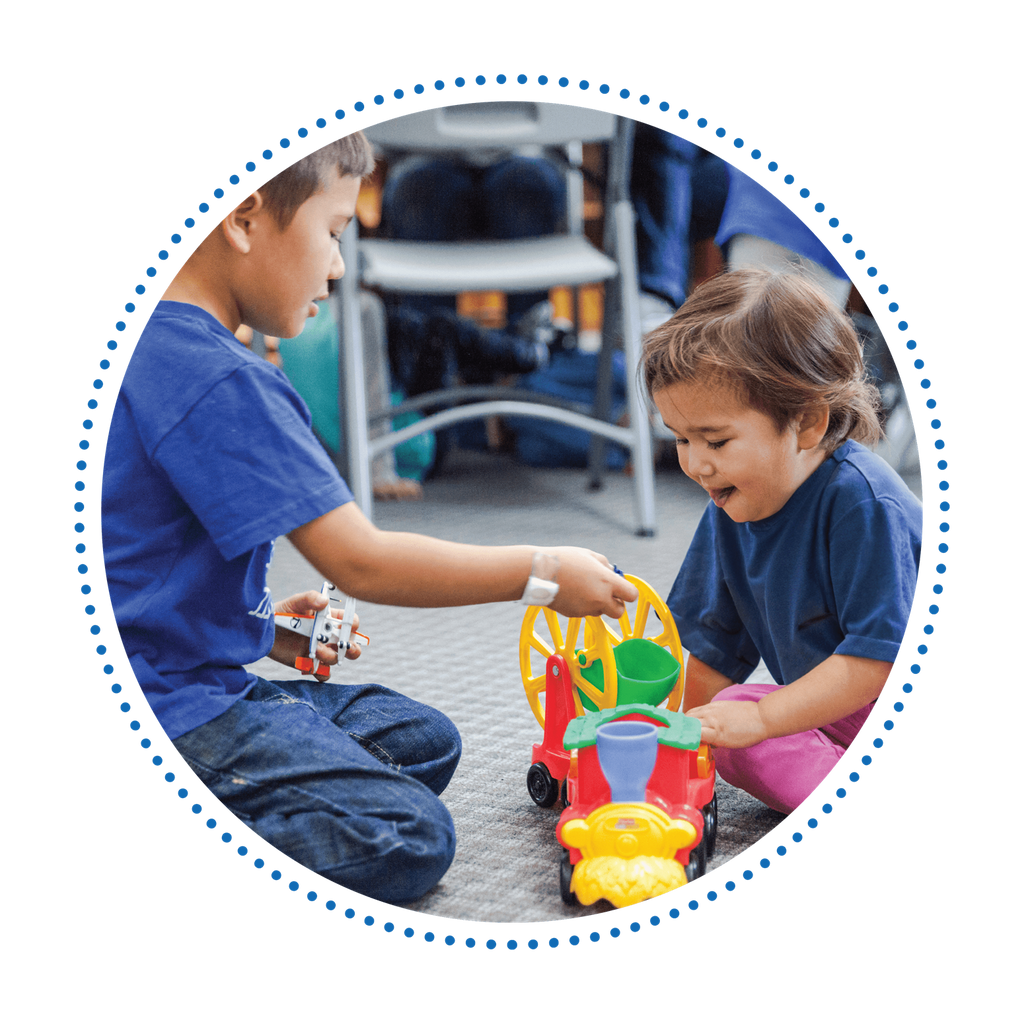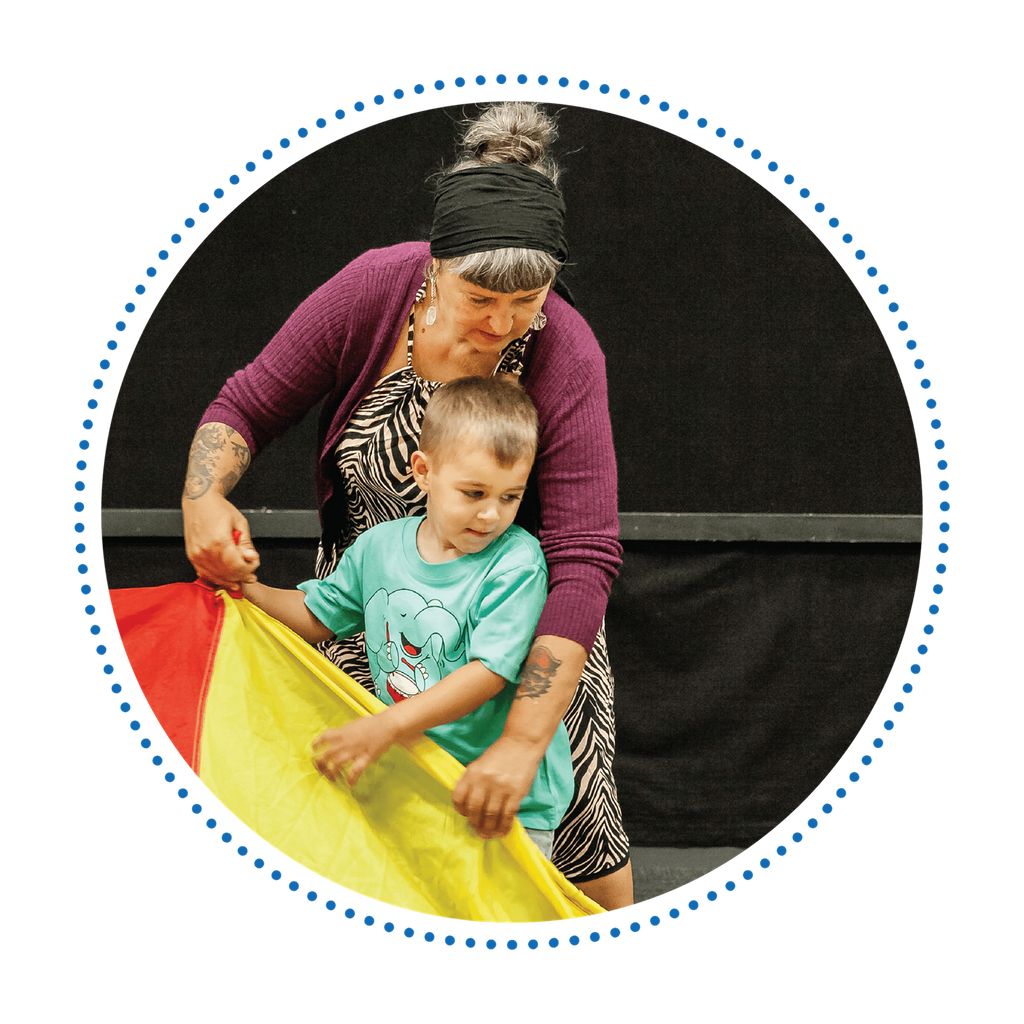Young children are drawn to activities with music, rhythm, and repetition. Singing to children helps them develop early language and literacy skills including building their vocabulary, speech patterns, grammar, and pronunciation. When children imitate actions and words, they are also improving their attention and listening skills, making eye contact, and learning to anticipate what comes next.
A musical experience is brain exercise for a child, enhancing their learning, focus, memory, and language.
One favourite activity in mainly music is to go around the children in the room and clap (or tap claves) the syllables of their names or their favourite fruit/vegetable/animal. Try this at home as you’re eating lunch or while you travel. Have your child clap something they see and you guess what it is.
Singing slows language down and provides rhyme, alliteration, and repetition, so that children start fostering their awareness of relationships between letters and sounds. Are you concerned about your child’s speech development? Be reassured that children progress at different rates.
If you’ve had advice from a child health nurse/Plunket, GP, or speech pathologist, tell us if your child is not meeting expected milestones. We’ll ask about their favourite song or activity so it can be used in the next block of sessions. Favourite songs and activities can’t be incorporated all the time, but we’ll work with you as much as we can.
Beyond your mainly music or mainly play session, incorporate songs and rhymes into every day by singing at regular transition times like tidy-up time, bath time and bedtime. This will help reinforce routines. Use traditional tunes to make up your own songs, using the activities happening during the day. Sing in the car. It doesn’t matter how well you think you sing; your child will enjoy joining in




